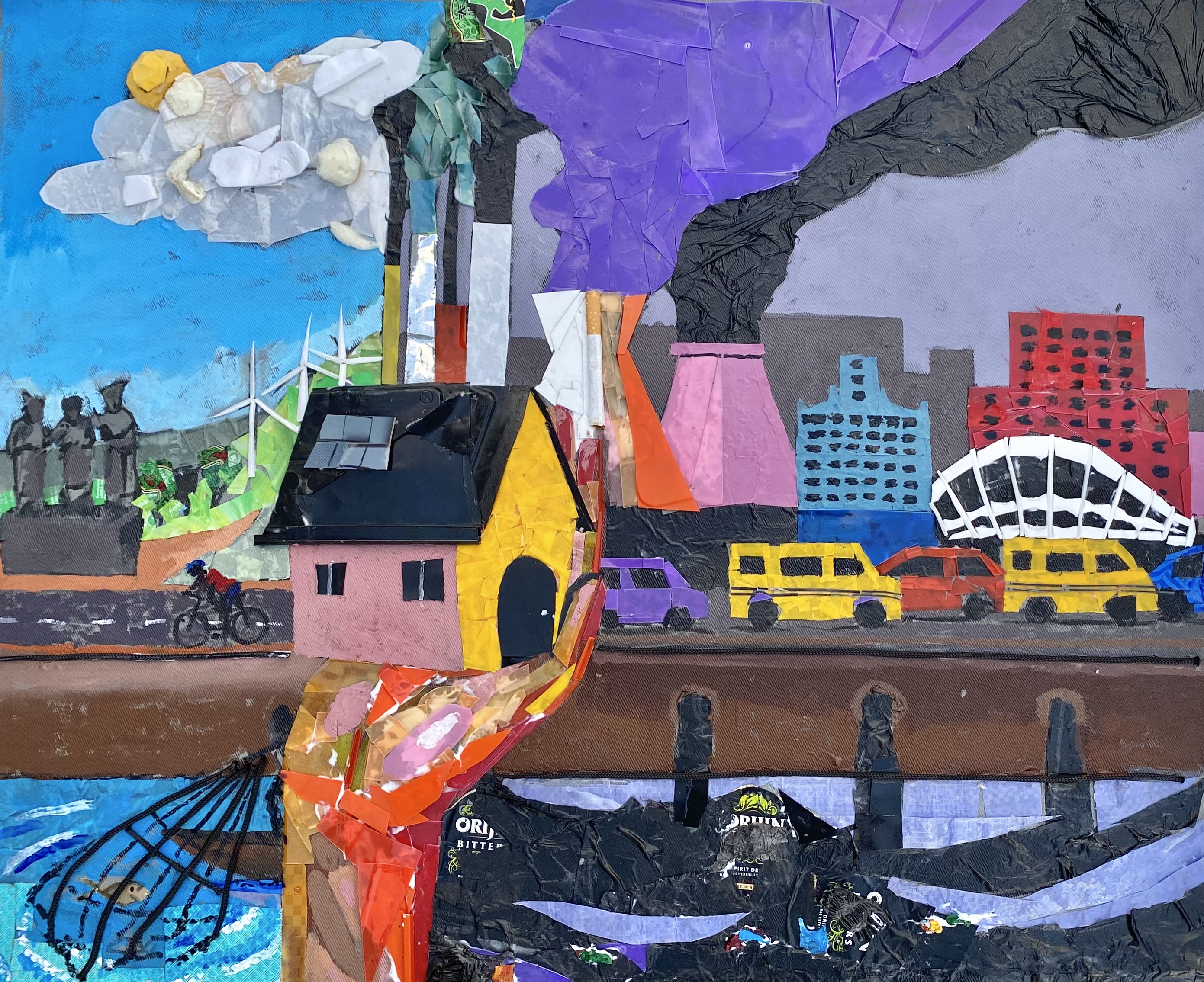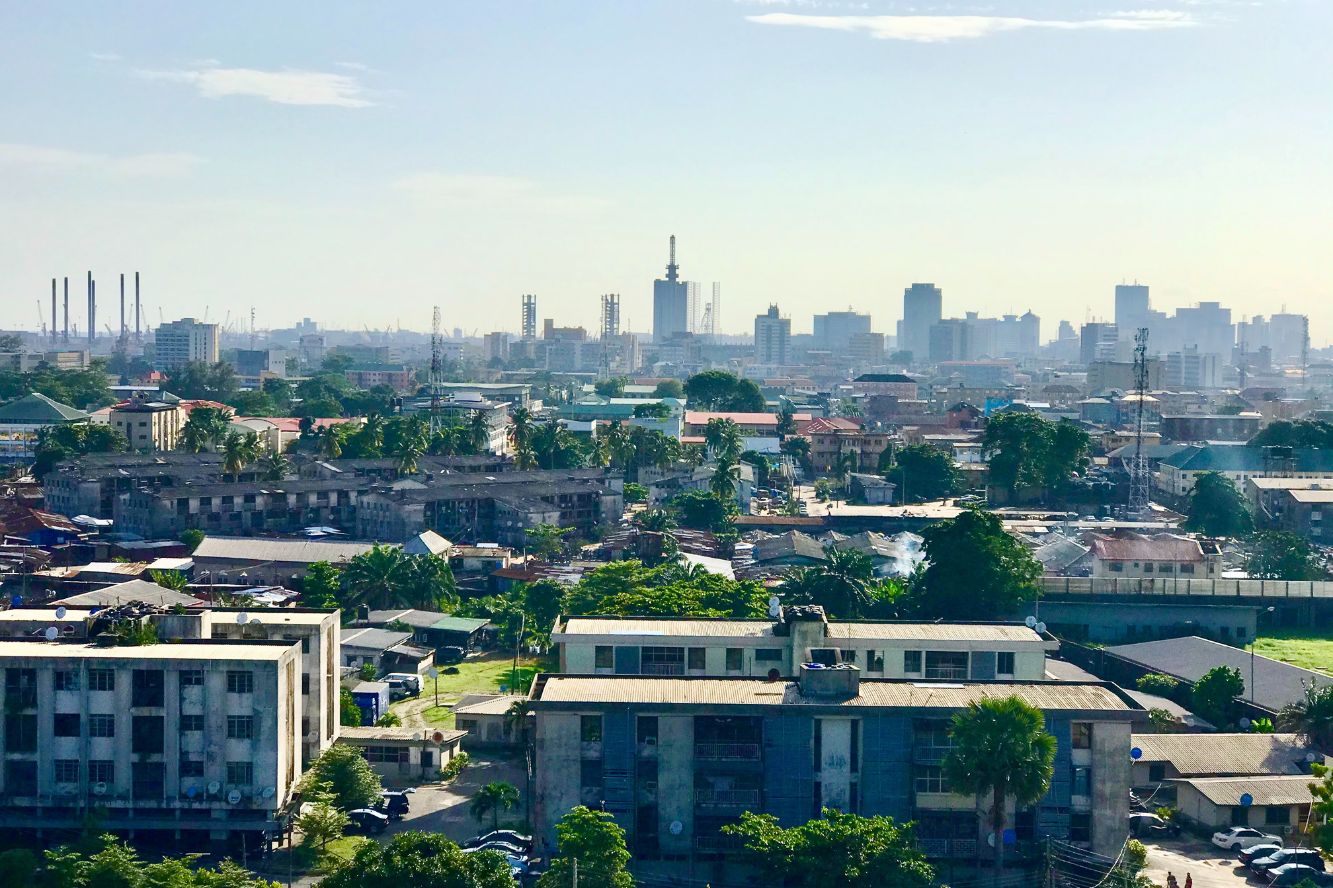Cities are often where people experience the impacts of climate change and of climate action, which can raise living costs and socio-economic inequalities.
In a series of local research cycles, IHRB is spotlighting eight cities, focusing on their built environment decarbonisation and resilience plans. This research series asks: how is each city minimising the negative social consequences of climate action, and maximising the positive impacts that built environment can have for inhabitants and the environment? And what are recommended actions from the government, investors, and the private sector?
Lagos Summary Report
With the increasing impacts of climate change in the built environment and vice versa, there is growing awareness of the need to build for all (local and migrants), and to consider both environmental and human rights aspects of the building process. Lagos, home to 10% of Nigeria’s population, is the most populated conurbation in the country, with its metropolitan area projected to reach 16 million in 2023. At the same time, two thirds of this megacity live in informal settlements, under living and working conditions that do not respect the right to live in dignified, affordable, and healthy housing.
This briefing examines the degree to which climate action in Lagos’ built environment acknowledges and addresses human rights dimensions. It also identifies underlying social, political, and economic explanations of the status of the just transition in the built environment. The report provides an overview of the national-local context, and the human rights risks and opportunities found, especially regarding governance, participation and decision-making processes, socio-spatial inequalities, and the right to housing.
Findings revealed:
- Lack of collaboration and coordination between stakeholders, a top-down centralised government structure facing significant corruption, and ineffective enforcement of locally-driven policies.
- Civil society organisations play an important role to help residents - particularly young people - to participate in built environment decisions that impact their lives.
Download the summary report
Visioning Workshop
As part of the “Building for Today and the Future” project, on 3 November 2022 representatives of the built environment industry, NGOs, businesses, academia, and government gathered at an IHRB-hosted online workshop to envision pathways for a just transition in Lagos’ built environment.
Read the write-up from the visioning workshop
Cities of the future: Visions for a just and climate-resilient built environment
We commissioned young artists in Lagos, Lisbon, Jakarta, Prague, Copenhagen and Melbourne to bring the visions of a fairer, greener future for each city to life through visual art pieces that can serve as a unifying vision for a locally-grounded, fairer transitions.
 Lagos Artwork by Taiwo Adebayo
Lagos Artwork by Taiwo Adebayo
The Building for Today and the Future project
These research summaries are part of The Building for Today and the Future project, which benefits from guidance and insights from its thematic partners including ICLEI - Local Governments for Sustainability, Building and Woodworkers International, and the International Union of Tenants.
The Building for Today and the Future project is made possible with support from Laudes Foundation and Ove Arup Foundation.
Report authors
The Lagos summary report was researched and written by Oluwafemi Joshua Ojo, Durham University, and Alejandra Rivera, Global Programme Manager, IHRB Built Environment.





























The perception of ‘value’ needs to change if the World Bank’s mission is to succeed
Last week we attended the Spring Meetings of the World Bank and International Monetary Fund (IMF) in Washington, D.C. The annual IMF-World Bank meetings bring together finance ministers and central bankers from all regions as a platform for official...
26 April 2024 | Commentary
Commentary by Vasuki Shastry, Author, ESG/Strategic Communications Expert; International Advisory Council, IHRB Haley St. Dennis, Head of Just Transitions, IHRB